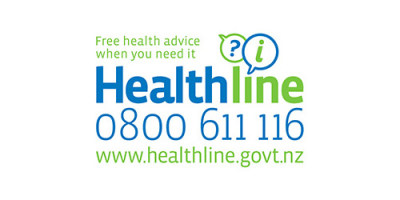Public health advice for people returning home after flood evacuations
This advice has been issued by the Nelson Marlborough Public Health Service, for people affected by flooding caused by severe weather on 16 and 17 July.
Click here for a printable PDF of advice, or read below.
Drinking water treatment
Current boil water notices: As at 8am, Friday 23 July there are boil water notices in place for Wairau Valley and Awatere (rural water customers). Boil water notices for Brightwater, Hope, Eighty Eight Valley, Tapawera and Pōhara Valley have been lifted. For the most up to date information about the notices, please refer to your council website:
- Marlborough: https://www.marlborough.govt.nz/services/alerts
- Tasman: https://tasman.govt.nz/my-council/about-us/media-centre/news-and-notices/boil-water-notice-and-storm-update-sunday-18-july/
We recommend you also download the Antenno app to keep up-to-date on water issues affecting your area. Antenno is a free mobile app used by Marlborough District Council, Tasman District Council and Nelson City Council. The Antenno app sends you alerts and notifications about places and topics you care about. It is simple and easy to use and no personal information or login details are required. The Antenno app can be downloaded from the App store or Google Play store.
For all areas affected by severe weather: Some drinking water supplies may be adversely affected by weather events. It is important to check with your water provider if you are unsure whether water is safe to drink. Councils will issue notices if any of their supplies are affected. If there is a boil water notice in place, or if you are unsure, people are advised to bring all drinking water to the boil before consuming. An electric jug only needs to be boiled once, until it automatically shuts off.
- Water should be boiled before drinking, brushing teeth, hand washing, use in food preparation, or making ice.
- If water cannot be boiled, treat it by adding half a teaspoon (2.5 ml) of non-scented plain chlorine bleach into a clean household bucket of water (ie. 10 litres) and leave for 30 minutes.
Boil water notices are published to the Tasman Disrict Council, Nelson City Council and Marlborough District Council websites.
How to prevent the spread of disease
To prevent the spread of infectious disease it is vital to always wash hands with soap and water (boiled or bleach disinfected):
- before preparing or eating food
- after toilet use
- after participating in cleanup activities, and handling articles that may have been affected by water contaminated sewage
If boiled or disinfected water is not available, you can use alcohol-based hand sanitiser to clean your hands.
If you are sick with diarrhoea and/or vomiting, it is important to limit contact with other people, do not go to work or school for 48 hrs after your symptoms have stopped.
If you are sick don’t prepare food or share plates, cups etc.
Sewage disposal
Human waste (faeces and urine) can spread disease. If there has been damage to sewerage systems or septic tanks, avoid overflows of any human waste. Protective clothing, gloves and good hand washing are important if you are dealing with raw sewage or water contaminated sewage.
If your toilet is not working bury human waste. Dig a hole, about a half to one metre deep, well away from your vegetable garden and any water course.
Thoroughly wash your hands immediately after contact with human waste.
Further information is available on your council or the Ministry of Health website at the following link: Protecting your health in an emergency | Ministry of Health NZ
Feeding babies in an emergency
Breastfeeding is the safest way to feed babies in an emergency, especially if safe drinking water and electricity are not available.
Where babies are not fed breast milk, a properly prepared, commercial infant formula is the only safe alternative.
People needing infant formula, feeding equipment and safe water and who cannot purchase these items in the usual way should contact the Welfare section at Civil Defence.
Further information is available at Healthline (0800 611 116) or Plunketline (0800 933 922)
Further information on feeding your baby infant formula is available on the Ministry of Health website at the following link: www.healthed.govt.nz/resource/feeding-your-baby-infant-formula
Stress and anxiety
Anxiety and associated emotional effects are very common when floods occur.
This is a normal response to a very stressful situation.
Talking to people and helping others is useful and if you need further support
Call or text 1737 for support and advice (24 hours a day, 7 days a week).
People with other health concerns are – as per normal – encouraged to call their GP or after hours service or Healthline on 0800 611 116.
In an emergency, call 111.
Take care with food
Understand what may or may not be safe to eat during an emergency. If there is no power use chilled food first, then frozen, and lastly canned and packaged food.
If unsure about the safety of food due to lack of chilled or frozen storage do not eat it. Thawed food should not be re frozen.
Further information is available on your Council or the Ministry of Primary Industries website at the following link:





